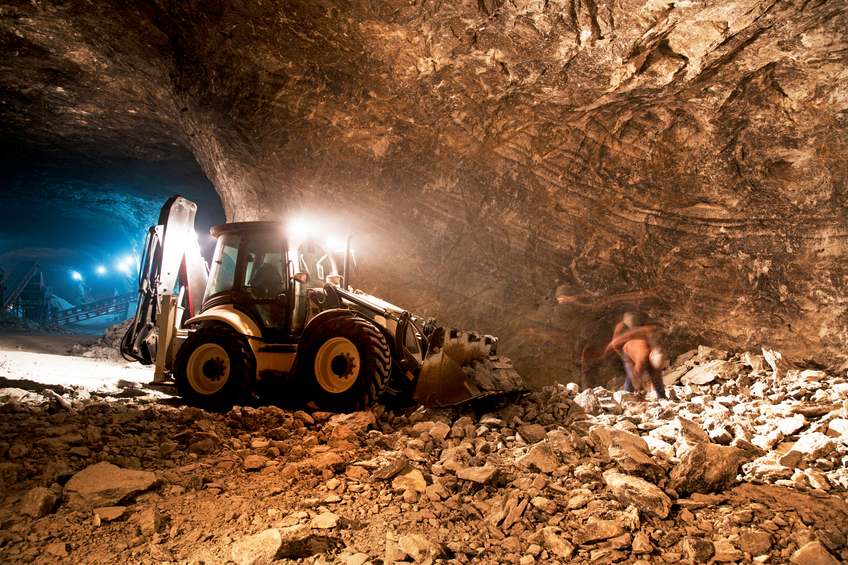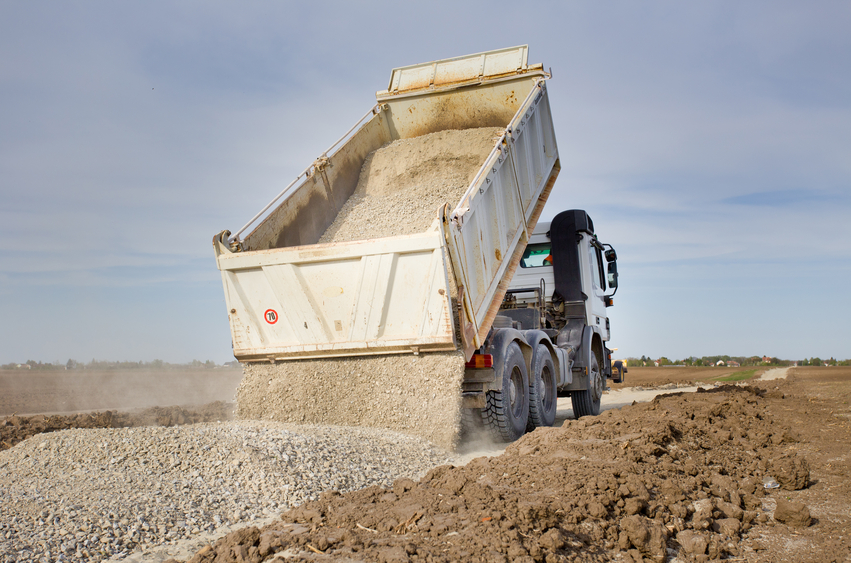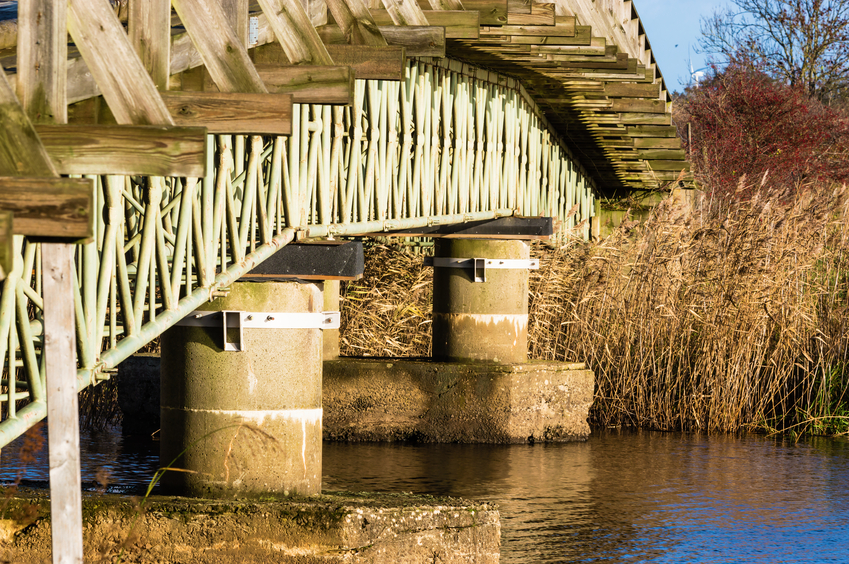Ohio Geotechnical and Ethics 30 PDH Discount Package 3
Design of Sheet Pile Walls (G05-001)
Soil Mechanics: Stress and Strain (G05-002 )
Hydraulic Performance of Shallow Foundations for the Support of Vertical-Wall Bridge Abutments (G07-007)
Tunnel Operations, Maintenance, Inspection, and Evaluation Manual: Operations (C01-019)
General Principles of Engineering Ethics (LE2-016)

This online engineering PDH course provides guidance on foundation exploration and testing procedures, load test methods, analysis techniques, design criteria and procedures, and construction considerations for the selection, design, and installation of pile foundations. The guidance is based on the present state of technology for pile-soil-structure-foundation interaction behavior.
Since the understanding of the physical causes of pile behavior is actively expanding by better definition through ongoing research, prototype, model pile foundation testing and development of more refined analytical models, this course is intended to provide examples and procedures of what has been proven successful.
This 10 PDH online course is applicable to geotechnical and structural engineers as well as design and construction personnel interested in understanding the construction techniques related to pile behavior during installation.
This PE continuing education course is intended to provide you with the following specific knowledge and skills:
- Understanding the stratigraphy of the subgrade as well as its engineering geology characteristics
- Selecting the criteria, procedures and parameters necessary for the analysis and design of pile foundations
- Understanding the various engineering considerations pertaining to the construction of pile foundations
- Understanding the methodology and objective of the field pile test program
In this professional engineering CEU course, you need to review the US Corps of Engineers Publication EM 1110-2-2906, "Design of Pile Foundations"
Upon successful completion of the quiz, print your Certificate of Completion instantly. (Note: if you are paying by check or money order, you will be able to print it after we receive your payment.) For your convenience, we will also email it to you. Please note that you can log in to your account at any time to access and print your Certificate of Completion.

This online engineering PDH course provides guidance on foundation exploration and testing procedures, analysis techniques, allowable criteria, design procedures, and construction consideration for the selection, design, and installation of sheet pile walls and flood walls. The guidance is based on the present state of the technology for sheet pile-soil-structure interaction behavior.
Since the understanding of the physical causes of sheet pile wall behavior is actively expanding by better definition through ongoing research, prototype, model sheet pile wall testing and development of more refined analytical models, this course is intended to provide examples and procedures of what has been proven successful.
This 5 PDH online course is applicable to geotechnical and structural engineers as well as design and construction personnel interested in understanding the construction techniques related to sheet pile wall behavior during installation.
This PE continuing education course is intended to provide you with the following specific knowledge and skills:
- Understanding the stratigraphy of the subgrade as well as its engineering geology characteristics
- Understanding current methodologies for evaluating system loads that govern the design of a sheet pile wall
- Evaluating failure modes and selecting certain system parameters to prevent failure
- Selecting criteria, procedures and parameters necessary for the structural design of sheet pile walls
- Understanding the behavior of the wall/soil system (interface interaction analysis)
- Understanding the various engineering considerations pertaining to the construction of sheet pile walls
- Understanding the special design considerations pertaining to the construction of sheet pile walls
In this professional engineering CEU course, you need to review the US Corps of Engineers Publication EM 1110-2-2504, "Design of Sheet Pile Walls".
Upon successful completion of the quiz, print your Certificate of Completion instantly. (Note: if you are paying by check or money order, you will be able to print it after we receive your payment.) For your convenience, we will also email it to you. Please note that you can log in to your account at any time to access and print your Certificate of Completion.

This online engineering PDH course, as a part of soil mechanics series, covers basic theories and practical applications of stress and strain in soils. Human beings have been building structures on, in, and with soils for centuries, and the principles of soil mechanics have been used for a long time, whether they were theorized or not.
Soil consists of three phases of solid, liquid and gas. In engineering, the interaction of these three phases dominates soil behavior in response to applied loads. Because of the three-phase composition, soils exhibit complex states of stresses and strains. A key task in the design and construction of facilities on, in, and with soils is proper quantification of these states of stress, and their corresponding strains.
This 5 PDH online course is applicable to geotechnical, civil, mining, structural, and environmental engineers, as well as design and construction personnel involved with the planning, design, and construction of building structures on, in, and with soils.
This PE continuing education course is intended to provide you with the following specific knowledge and skills:
- Understanding the soil phase diagram and basic volume-weight relationships
- Learning about the basic theories of soil mechanics, including:
- effective stress, consolidation
- Mohr-Coulomb (M-C) failure criterion
- Rankine active and passive failure zone theories
- Understanding the application of soil mechanics to design and construction in evaluating:
- volume-weight properties
- effective overburden stresses
- depth of major stress bulb
- 2:1 stress distribution
- soil shear strength as defined by M-C criterion
In this professional engineering CEU course, you need to review Chapter 2, Stress and Strain in Soils of the Federal Highway Administration "Reference Manual Volume I, SOILS {C}AND FOUNDATIONS", Publication No. FHWA NHI-06-088.
Upon successful completion of the quiz, print your Certificate of Completion instantly. (Note: if you are paying by check or money order, you will be able to print it after we receive your payment.) For your convenience, we will also email it to you. Please note that you can log in to your account at any time to access and print your Certificate of Completion.

This online engineering PDH course provides basic information on hydraulic performance of shallow foundations for the support of vertical-wall bridge abutments.
Scour at the base of bridge abutments during floods is a common cause of bridge failure in the United States. Shallow abutment foundations located at or near the channel banks are considered more vulnerable than other foundations because they are closer to the streambed and can significantly constrict flood flows. These types of abutments are frequently implemented for single-span bridges, and scour countermeasures are often integrated into the design to avoid placing the foundation below local scour depth.
Therefore, to protect small single-span bridge abutments built on shallow foundations from scour damage, methods for countermeasure design are needed that consider the abutment foundation and scour countermeasures as an integrated component of the bridge. The research study described in this course is designed to provide a complete picture of the flow field and local bed shear stresses on heterogeneous bed roughness in the bridge opening.
This 7 PDH online course is applicable to geotechnical engineers who are interested in improving their knowledge about scours occurring at the base of bridge abutment during floods.
This PE continuing education course is intended to provide you with the following specific knowledge and skills:
- Familiarizing with the performed literature research to determine depth and location of scour
- Understanding the proposed guidance on the hydraulic requirements for shallow abutment foundations
- Gaining a general overview of the development of a conceptual model for the increased shear in the middle of the contracted channel section
- Learning about the experimental equipment, program, and findings for several abutment riprap layouts
- Understanding the different design guidelines and requirements for riprap aprons for vertical-wall abutments with shallow foundations
In this professional engineering CEU course, you need to review the course document titled, "Hydraulic Performance of Shallow Foundations for the Support of Vertical-Wall Bridge Abutments”, which is based on the Department of Transportation document “Hydraulic Performance of Shallow Foundations for the Support of Vertical-Wall Bridge Abutments”, Publication No. FHWA-HRT-17-013.
Upon successful completion of the quiz, print your Certificate of Completion instantly. (Note: if you are paying by check or money order, you will be able to print it after we receive your payment.) For your convenience, we will also email it to you. Please note that you can log in to your account at any time to access and print your Certificate of Completion.

This online engineering PDH course presents essential roles and responsibilities of the tunnel staff, normal operating procedures, and emergency response guidelines for vehicle collisions, fires, explosions, floods and earthquakes.
Operating requirements vary among tunnel facilities because of the traffic level, the feasibility of alternative routes, accessibility to existing utilities, availability of emergency responders, and other conditions specific to each tunnel. Functional systems within the tunnel must be integrated with operational procedures to include the mechanical equipment, electrical components, lighting fixtures, fire and life safety systems, signs and security equipment installed within the tunnel.
This 1 PDH online course is applicable to civil and structural engineers, as well as design personnel and staff involved in the operation of tunnel systems.
This PE continuing education course is intended to provide you with the following specific knowledge and skills:
- Understanding the essential roles and responsibilities of the tunnel staff
- Familiarization with normal tunnel operating procedures
- Understanding the emergency response guidelines for vehicle collisions, fires, explosions, floods, and earthquakes
Upon successful completion of the quiz, print your Certificate of Completion instantly. (Note: if you are paying by check or money order, you will be able to print it after we receive your payment.) For your convenience, we will also email it to you. Please note that you can log in to your account at any time to access and print your Certificate of Completion.

This online engineering PDH course presents the principles of engineering ethics that every engineer is expected to live by when practicing their profession.
Engineering ethics is (1) the study of moral issues and decisions confronting individuals and organizations involved in engineering and (2) the study of related questions about moral conduct, character, ideals and relationships of peoples and organizations involved in technological development (Martin and Schinzinger, Ethics in Engineering).
This course describes the fundamental legal concepts with which very engineer should be familiar. It also presents unique disciplinary case studies selected from across the nation, as well as hypothetical ethical challenges that demonstrate how difficult it can be to apply the code of ethics for engineers.
This 2 PDH online course is applicable to all professional engineers who are either required to fulfill 2 PDH in engineering ethics or are interested in broadening their understanding of what it means to practice and uphold the honor and integrity of their engineering profession while holding the utmost safety, health, and welfare of the public.
This PE continuing education course is intended to provide you with the following specific knowledge and skills:
- Understanding the common definition of ethics regarding engineering
- Learning about the important principles of the engineer’s professional responsibility
- Learning the do’s and don’ts through several ethical and disciplinary cases
- Understanding what it means to practise and uphold the honor and integrity of the engineering profession
Upon successful completion of the quiz, print your Certificate of Completion instantly. (Note: if you are paying by check or money order, you will be able to print it after we receive your payment.) For your convenience, we will also email it to you. Please note that you can log in to your account at any time to access and print your Certificate of Completion.